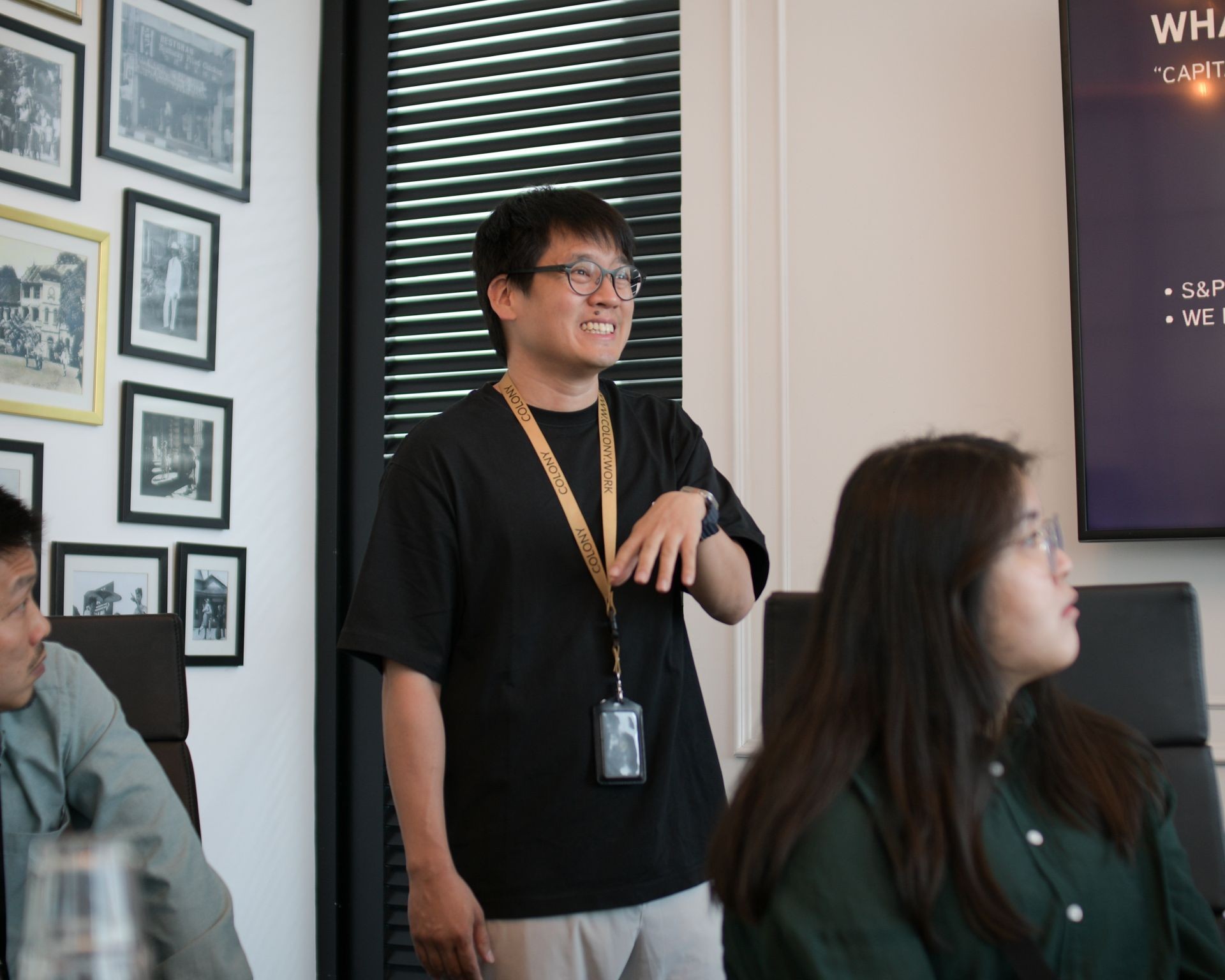
In July 2025, Malaysian entrepreneur Timothy Tiah posted a video expounding his belief that studying abroad is not worth it.
Hundreds of thousands of views later, we sat down to ask him further about his stance.
It starts with an unsuitable major
Tiah himself was an international student, having obtained his economics degree at University College London (UCL). His dad had been very supportive of him getting an education abroad, so that’s what he did.
Now the CEO and co-founder of Colony Co-working Space, he finds his degree to have been “useless” and a “grave mistake.”
Turns out, there was a mismatch in expectations. Tiah’s interest in economics was sparked during his A Levels, where the topic had been broader and more relevant to his interests. However, a degree in economics involved a lot of deep math, statistics, and equations littered with unfamiliar symbols.
“I would’ve understood [the sheer volume of math work] if I did math or physics, but this is economics!” Tiah says.
Despite his frustration, he gritted his teeth and set out to complete what he had started — a Bachelor’s degree he never had to use again.
View this post on Instagram
It doesn’t make sense on an ROI perspective
Beyond his dislike for his economics degree, Tiah simply finds an overseas education unreasonable due to the poor return on investment (ROI).
That’s understandable, as studying in the “Big Four” (meaning, popular) countries for international education such as Australia, Canada, the UK, and the US is rather expensive for Malaysians. The payback period for such an investment would be incredibly long if you choose to return to Malaysia for work.
A comfortable estimate for a degree in the US might be RM500,000 (around US$118,203, with all conversions made at the time of writing), which would already be considered cheap. And that’s just tuition, not including living expenses.
Meanwhile, a Malaysian degree at a private university might set you back RM50,000 (around US$11,820).
The average salary for a fresh graduate in Malaysia is around RM3,000 (around US$709). An international graduate, from Tiah’s lived experience, might be able to command a slightly higher salary. Let’s say RM3,500 (around US$827) — a more generous figure compared to Tiah’s assumption of RM3,200 to RM3,300 (around US$757 to US$780)
That means a local graduate may be able to pay back their degree in less than two years. Meanwhile, a US graduate might need 11 to 12 years. Of course, that’s assuming if the salary remains the same, which it ideally would not. Still, to justify the rationality of studying abroad, though, you’d need to climb the ranks a lot faster compared to your peers who studied locally.
Of course, the math becomes different when you choose to work and live abroad. But don’t forget the cost of sacrifices such as being apart from loved ones.

Tiah’s company, Colony Coworking Space, was founded in 2017. Source: Timothy Tiah
Is the problem with tertiary education in general?
Maybe the issue isn’t just about studying abroad, it’s about the cost of a university degree in general.
Tiah does believe that a lot of university degrees (aside from ones like law and medicine) aren’t really necessary. He, for one, didn’t really care for his economics degree. But he understands the rationale behind some of those “impractical” degrees, as it really helps you broaden your perspective.
“My wife studied Asian studies and liberal arts and her argument is like, she learnt about all these things and she opened her mind about Asian history and all this kind of stuff. So I think that maybe there’s an argument for these kinds of benefits,” he says. “But economics? Studying deep, deep math that I’ll never use again?”
He shakes his head. The entrepreneur believes that there are many things, such as running a business or playing pickleball, that can be learnt more by doing instead of studying it.
“I do think it’s a [problem with] tertiary education, in general,” he says. “But I do think that, given this, if you go overseas and study, you’re making the ROI even worse than a local grad’s.”
More than returns
While it may be true that an education abroad isn’t a lucrative decision, some may argue that the experiences and networks might’ve made it all worth it.
“But honestly, it’s not like if we stay here, we’re going to have no experiences,” he points out, “Who’s to say what experience is better than the other?”
Indeed, someone who studied locally could’ve gotten a wealth of experiences too. Perhaps not the exposure to a whole new country and culture, but still, other sorts of valuable experiences.
In fact, Tiah believes that local graduates might show more resilience in the workplace.
“If you come from a wealthy family, chances are you studied abroad and as a result, you are less resilient. You had a much easier life,” he says. “I’m talking about myself too. I’m like what they call the strawberry generation — easily bruised.”
And when it comes to networking, if you choose to return home to work, the network you built abroad might not even serve you, anyway.

Tiah previously owned an influencer and content marketing company name Nuffnang. Source: Timothy Tiah
Finding value in the intangible
Tiah likens education to buying a property. Property agents typically ask: “For your own stay, or investment?” When it comes to an investment, it’s usually tougher because it needs to make financial sense. But when it comes to own stay, people are willing to overpay as it comes down to preference and emotional connection.
And that’s the truth. When it comes to personal experiences, the intangible value is sometimes priceless.
Studying abroad might not immediately make sense financially to some people. But for many, the choice is rooted in something more than money. You get to entirely immerse in a different culture, tap into unique opportunities, and maybe encounter a new approach to learning. For some, it just makes sense.
But Tiah has his point — so, think twice if your decision to study abroad is purely for financial returns.











